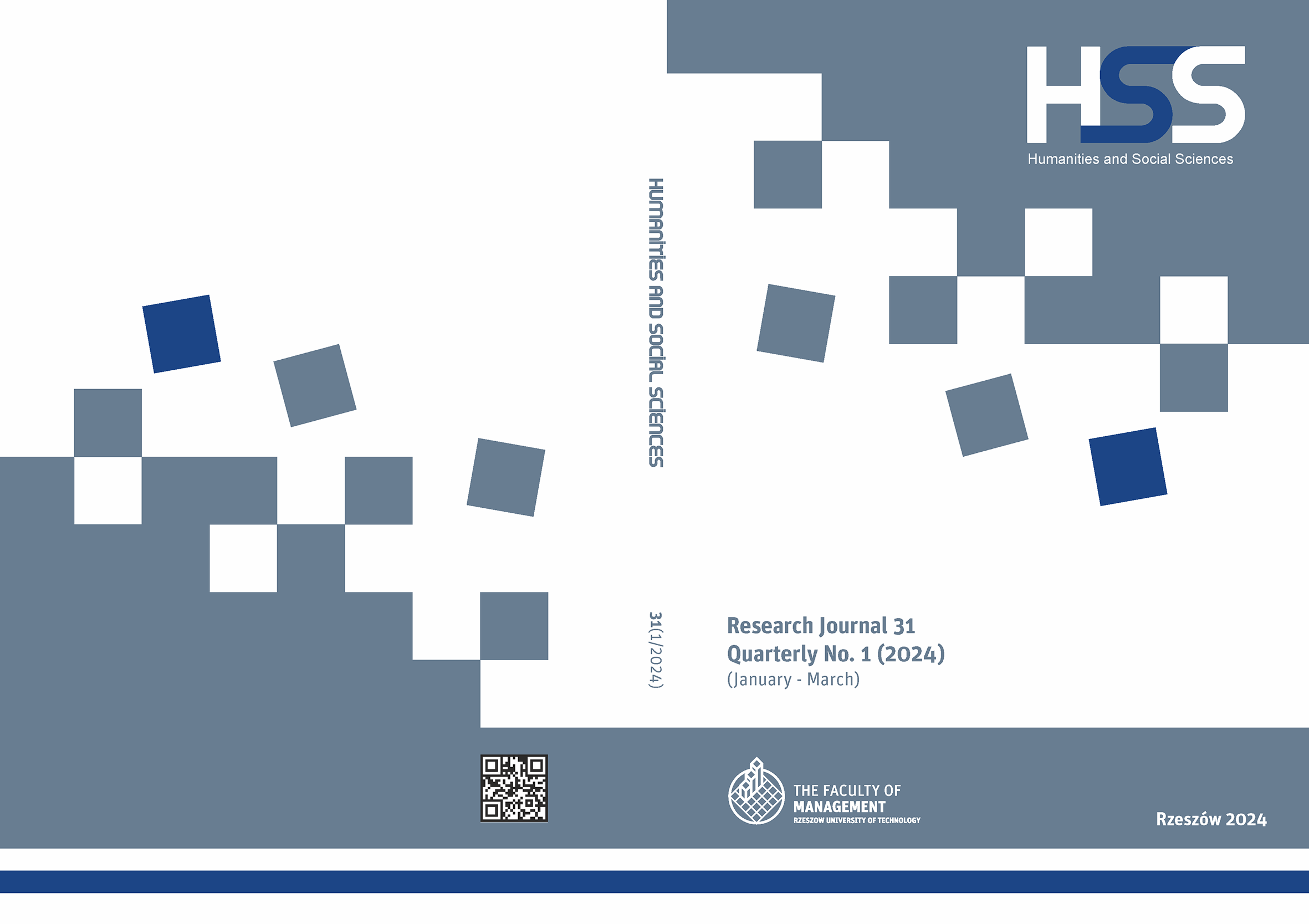Abstrakt
The paper aims to investigate the correlation between knowledge management and business sustainability through sustainability-oriented projects. The role of projects in promoting sustainability is already recognized, with sustainability-oriented projects emerging as a pivotal mechanism for companies to actively contribute to sustainability goals. Theoretical arguments also suggest that the enhancement of knowledge management is crucial for the advancement of sustainable business. Still, assertions in both areas lack solid empirical verification. Simultaneously, there is a growing emphasis on exploring the connection between knowledge management and project management, as existing studies indicate that knowledge management enhances the efficiency and effectiveness of projects. However, the nexus between knowledge management, project management, and business sustainability remains largely unexplored. This study aims to address two questions: whether knowledge management has a positive effect on business sustainability, and whether it is mediated by sustainability-oriented projects. The research hypotheses are verified through
a large-scale empirical study utilizing SEM.
Bibliografia
Abbas, J. (2020). Impact of total quality management on corporate sustainability through the mediating effect of knowledge management. “Journal of Cleaner Production”, 244. DOI: 10.1016/j.jclepro.2019.118806.
Abbas, J., Sağsan, M. (2019). Impact of knowledge management practices on green innovation and corporate sustainable development: A structural analysis. “Journal of Cleaner Production”, 229. DOI: 10.1016/j.jclepro.2019.05.024.
Bukowitz, W., Williams, R. (2000). The Knowledge management fieldbook. Prentice Hall.
Goel, A., Ganesh, L.S., Kaur, A. (2020). Project management for social good: A conceptual framework and research agenda for socially sustainable construction project management. “International Journal of Managing Projects in Business”, 13(4). DOI: 10.1108/IJMPB-06-2019-0155.
Hart, S.L., Milstein, M.B. (2003). Creating sustainable value. “Academy of Management Perspectives”, 17(2). DOI: 10.5465/ame.2003.10025194.
Hu, Q., Williams, S., Mason, R., Found, P. (2019). Knowledge management in consultancy-involved process improvement projects: Cases from Chinese SMEs. “Production Planning & Control” 30(10–12). DOI: 10.1080/09537287.2019.1582095.
Iqbal, Z., Malik, M. (2019). Entrepreneurial orientation and engagement of Pakistani small and medium enterprises in sustainable development practices: Mediating role of knowledge management. “Business Strategy & Development”, 2(3). DOI: 10.1002/bsd2.53.
Kaiser, D.B., Köhler, T., Weith, T. (2016). Knowledge management in sustainability research projects: Concepts, effective models, and examples in a multi-stakeholder environment. “Applied Environmental Education & Communication”, 15(1). DOI: 10.1080/1533015X.2016.1141720.
Kumari, A., Saharan, T. (2020). Knowledge Management as a Catalyst to Sustainable Development in Banking Industry. “2020 International Conference on Computer Science, Engineering and Applications (ICCSEA)”, 1–6. DOI: 10.1109/ICCSEA49143.2020.9132880.
Liu, H., Liu, Z. (2009). Notice of Retraction: Conceptual Framework and Key Issues of Project Management Based on Knowledge Management. “2009 International Conference on Management and Service Science”, 1–5. DOI: 10.1109/ICMSS.2009.5302341.
López-Torres, G.C., Garza-Reyes, J.A., Maldonado-Guzmán, G., Kumar, V., Rocha-Lona, L., Cherrafi, A. (2019). Knowledge management for sustainability in operations. “Production Planning & Control”, 30(10–12). DOI: 10.1080/09537287.2019.1582091.
Moutinho, J. da A., Silva, L.F. da. (2022). Knowledge management in project management: Mapping bibliographic convergence. “Knowledge Management Research & Practice”, 20(2). DOI: 10.1080/14778238.2021.1931502.
Neves, S., Silva, C., Salomon, V., Silva, A., Sotomonte, B. (2014). Risk management in software projects through Knowledge Management techniques: Cases in Brazilian Incubated Technology-Based Firms. “International Journal of Project Management”, 32. DOI: 10.1016/j.ijproman.2013.02.007.
Oluikpe, P., Sohail, M., Odhiambo, F. (2010). Towards a framework for Knowledge Management in Project Management. “International Journal of Knowledge Management Studies”, 4(1). DOI: 10.1504/IJKMS.2010.029785.
Probst, G., Raub, S., Romhardt, K. (2000). Managing knowledge: Building blocks for success. Wiley.
Rokou, E., Kirytopoulos, K., Stavrou, V. (2012). Embracing real outcomes to future projects: A knowledge management method for schedule development. “International Journal of Project Organisation and Management”, 4(4). DOI: 10.1504/IJPOM.2012.050327.
Sabini, L., Alderman, N. (2021). The Paradoxical Profession: Project Management and the Contradictory Nature of Sustainable Project Objectives. “Project Management Journal”, 52(4). DOI: 10.1177/87569728211007660.
Senge, P.M., Smith, B., Kruschwitz, N., Laur, J., Schley, S. (2010). The Necessary Revolution: How Individuals and Organizations Are Working Together to Create a Sustainable World (NO-VALUE edition). Crown Currency.
Siebenhüner, B., Arnold, M. (2007). Organizational learning to manage sustainable development. “Business Strategy and the Environment”, 16(5). DOI: 10.1002/bse.579.
Silvius, G. (2017). Sustainability as a new school of thought in project management. “Journal of Cleaner Production”, 166. DOI: 10.1016/j.jclepro.2017.08.121.
Silvius, G., Marnewick, C. (2022). Interlinking Sustainability in Organizational Strategy, Project Portfolio Management and Project Management a Conceptual Framework. “Procedia Computer Science”, 196. DOI: 10.1016/J.PROCS.2021.12.095.
Sun, Y., Shahzad, M., Razzaq, A. (2022). Sustainable organizational performance through blockchain technology adoption and knowledge management in China. “Journal of Innovation & Knowledge”, 7(4). DOI: 10.1016/j.jik.2022.100247.
Suresh, S., Olayinka, R., Chinyio, E., Renukappa, S. (2017). Impact of knowledge management on construction projects. “Proceedings of the Institution of Civil Engineers - Management, Procurement and Law”, 170(1). DOI: 10.1680/jmapl.15.00057.
Todorović, M.Lj., Petrović, D.Č., Mihić, M.M., Obradović, V.Lj., Bushuyev, S.D. (2015). Project success analysis framework: A knowledge-based approach in project management. “International Journal of Project Management”, 33(4). DOI: 10.1016/j.ijproman.2014.10.009.
Tworek, K., Walecka-Jankowska, K., Zgrzywa-Ziemak, A. (2019). The role of information systems in shaping integrative logic for business sustainability. “Operations Research and Decisions”, 29(4). DOI: 10.37190/ord190406.
Velazquez, L.E., Esquer, J., Munguía, N.E., Moure‐Eraso, R. (2011). Sustainable learning organizations. “The Learning Organization”, 18(1). DOI: 10.1108/09696471111095984.
Wu, Y.N., Chen, Q.Z. (2010). Research of Knowledge Management in the Field of Project Management. “Advanced Materials Research”, 113–116. DOI: 10.4028/www.scientific.net/AMR.113-116.42.
Zaim, H., Tatoglu, E., Zaim, S. (2007). Performance of knowledge management practices: A causal analysis. “Journal of Knowledge Management”, 11(6). DOI: 10.1108/13673270710832163.
Zgrzywa-Ziemak, A., Walecka-Jankowska, K. (2020). The relationship between organizational learning and sustainable performance: An empirical examination. “Journal of Workplace Learning”, 33(3). DOI: 10.1108/JWL-05-2020-0077.
Zieba, M. (2021). Knowledge and Knowledge Management [In:] Zięba, M., ed., Understanding Knowledge-Intensive Business Services: Identification, Systematization, and Characterization of Knowledge Flows (p. 1–19). Springer International Publishing. DOI: 10.1007/978-3-030-75618-5_1.


